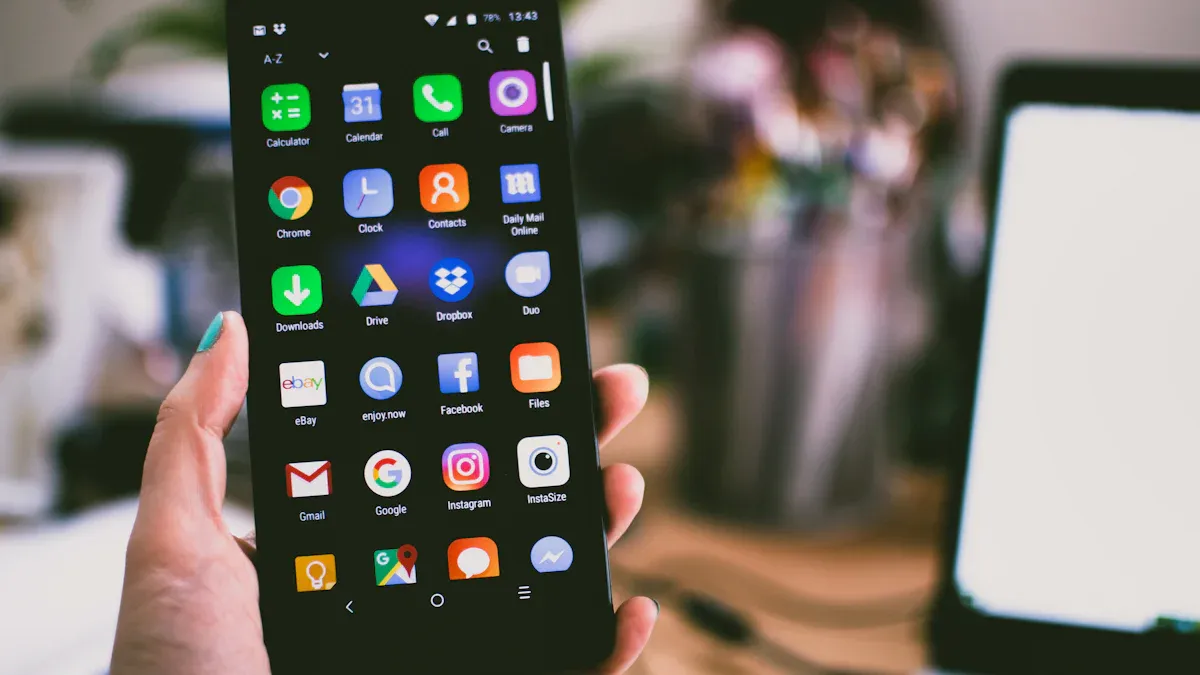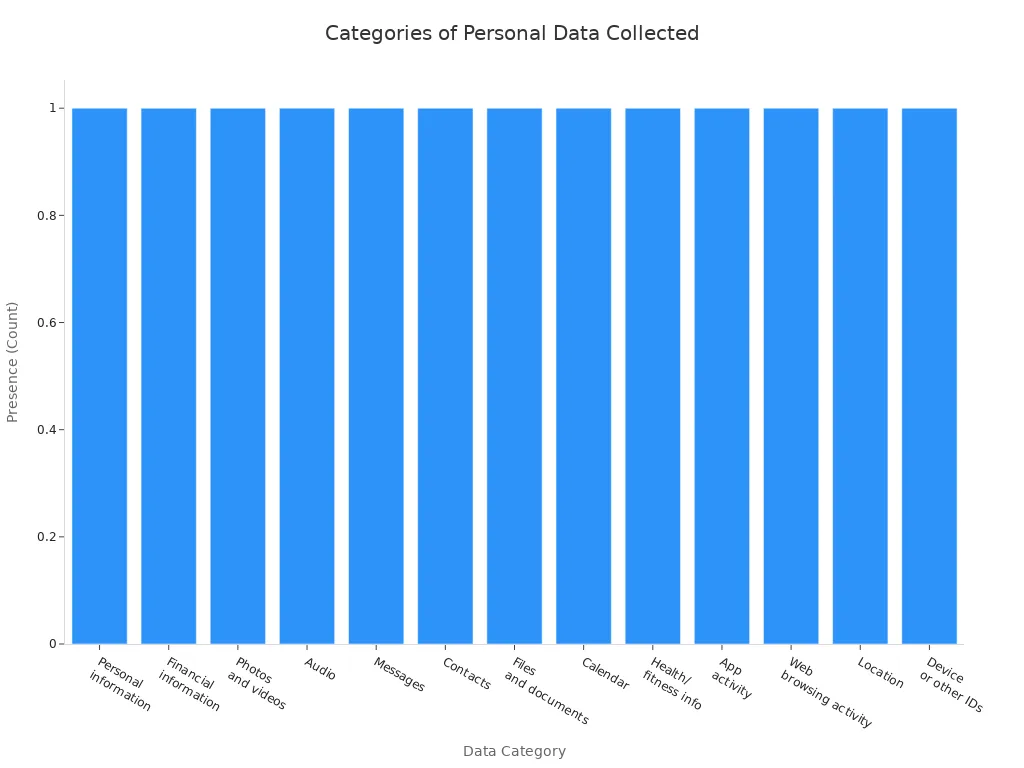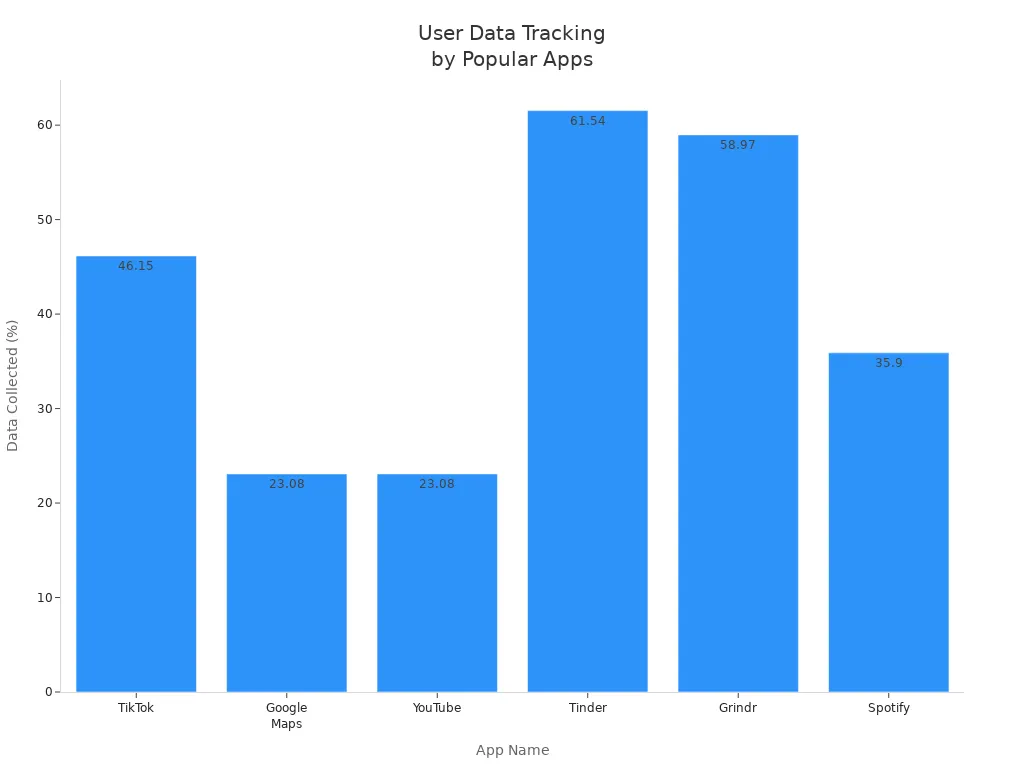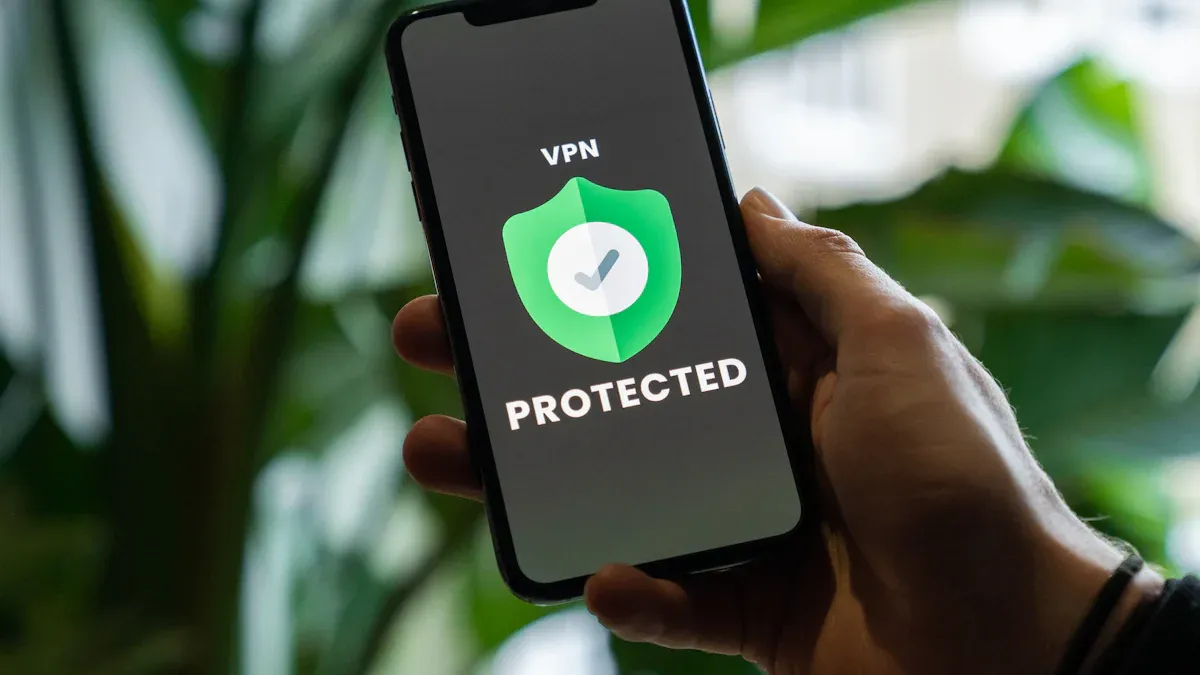What Information Does Your Smartphone Really Know About You

Your smartphone gathers many types of information each day. You give away facts about your routines, where you are, and what you like without knowing. Digital privacy is important for all people, no matter which device you have. New ideas like the Vertu Quantum Flip prove that luxury and privacy can go together. Consider what does your smartphone say about your status and how much it reveals about your everyday life.
Key Takeaways
-
Smartphones gather many types of personal data. This includes your location, contacts, and what you do each day. You should know what your device collects.
-
Check app permissions often. Only let apps use data they really need. This helps keep your privacy safe.
-
You can limit data collection by removing apps you do not use. Change your settings to stop ad tracking. These steps help protect your information.
-
Think about using privacy-focused smartphones. These phones have strong security features. They can destroy data and use strong encryption. This keeps your data safer.
-
Learn about privacy risks like spyware and data breaches. Take steps to protect your personal information before problems happen.
Your Data and Status
What Does Your Smartphone Say About Your Status
Your smartphone shows a lot about your life. You may not know how much it tells about you. It keeps track of who you talk to and where you go. Every call, text, or group chat can show who your friends are. It also shows what you do each day. The places you visit and how often you travel are saved. Even your favorite workout spots are part of your digital story.
|
Type of Personal Data |
Description |
|---|---|
|
Social Interactions |
Includes initiated and received communications, ambient conversation, speaking rates, and group sizes. |
|
Daily Activities |
Encompasses physical activity, sleeping patterns, and social habits like partying and studying. |
|
Mobility Patterns |
Involves time spent in various locations, frequency of visits, distance traveled, and mobility routines. |
Smartphones use your location to learn about your lifestyle. If you go to the gym every morning, your phone knows. If you spend weekends at a café, that is recorded too. This can show where you live and work. It can also show your daily habits and when you are not home. Companies use this information to send you ads or deals. Sometimes, this can put your privacy in danger.
When you think about what your smartphone says about you, remember it collects more than just contacts or photos. It builds a story about your habits, your friends, and your favorite places.
Types of Personal Information Collected
Your smartphone collects many types of personal information every day. This includes your name, address, and phone number. It also saves your money details, photos, audio files, messages, contacts, and even your health and fitness records. The table below shows the main types and how they are used:
|
Description |
Typical Use Case |
Potential Privacy Issue |
|
|---|---|---|---|
|
Personal information |
Name, address, phone number, and other personal details. |
Your name is displayed on a videoconferencing app. |
A video streaming app shares your email address with third parties to create a comprehensive profile of your interests, which they use to display targeted ads. |
|
Financial information |
Information such as your credit card number, purchase history, and credit score. |
A video streaming app accesses your purchase history to determine whether or not you are subscribed, and whether you can access premium content. |
A free game uses your app purchase history to display targeted ads. |
|
Photos and videos |
Photos and videos stored on your phone. |
A social media app accesses your photos when you go to upload an image to the platform. |
An untrustworthy app downloads and stores your photos, they are later leaked in a data breach. |
|
Audio |
Audio files and audio recorded by your phone. |
A messaging app uses your phone's microphone to help you record an audio message. |
An untrustworthy app collects an audio file, it is later leaked in a data breach. |
|
Messages |
Emails, SMS, and in-app messages. |
An email app allows you to import messages from another email app you've previously used. |
An email app uses the content of your emails to display targeted ads. |
|
Contacts |
Your phone contacts. |
A social media app uses your contacts to help you find friends on the platform. |
A social media app uses your contacts to narrow down your interests based on who is on your contact list, to display targeted ads. |
|
Files and documents |
Files and documents stored on your phone, such as downloaded PDFs. |
A government app uses a photocopy of your passport to verify your identity. |
An untrustworthy app downloads a private PDF file and stores it on a third-party server. |
|
Calendar |
Your calendar information, such as meetings booked. |
A videoconferencing app accesses your calendar to alert you of an upcoming meeting. |
A web browser app accesses your calendar to pinpoint your location and display targeted ads. |
|
Health/fitness information |
Medical records and symptoms, and fitness information (such as collected by a smart watch). |
A government app uses your medical records to help you book doctors' appointments. |
A social media app collects health/fitness information to display targeted ads. |
|
App activity |
Installed apps, app activity, user information provided in-app, in-app search history, and other in-app actions. |
An app suggests that the user download another app made by the same company, if the app is not already installed. |
An online shopping app uses in-app search history to display targeted ads on websites you visit. |
|
Web browsing activity |
Websites you have visited in the past. |
A web browser app displays URLs you have visited in the past. |
A social media app uses your browsing history to display targeted ads. |
|
Location |
Your phone's physical location, either exact or approximate, as provided by your phone's GPS. |
A rideshare app shows your location to your driver. |
A social media app uses your city or even your exact location (such as a shopping centre) to display more targeted ads. |
|
Device or other IDs |
Information that identifies your specific device, such as its MAC address. |
A web browsing app identifies other devices you have the app installed on, in order to sync your browsing history across multiple devices. |
A social media app builds a profile of your activity on your phone, computer, and other devices, in order to display targeted ads. |

Your phone uses many sensors to collect this data. These include the accelerometer, gyroscope, GPS, microphone, camera, and heart rate monitor. Each sensor helps your phone learn more about you. When you ask what your smartphone says about your status, you see it knows more than you think.
Smartphone Data Tracking
How Data Is Collected
You use your smartphone every day. You might not know how much it learns about you. There are two ways your phone collects data: active and passive. Active data is what you give, like answering questions or tapping notifications. Passive data is gathered by sensors and runs in the background. Sensors like GPS track where you go. Accelerometers sense movement. Microphones pick up sounds.
|
Method Type |
Description |
|---|---|
|
Active Data |
Users share their thoughts and feelings in real-time. |
|
Passive Data |
Sensors collect data like location and usage without help from users. |
Your phone mixes self-reports and observer-reports to learn about you. It uses sensors to watch your social life and health signs. Sometimes, you get notifications asking about your mood or actions. These questions can pop up at random times or when something happens. Some notifications work even if you are offline. So, your phone keeps collecting data all the time.
Background processes are important for data tracking. They run quietly and gather information day and night. Apps like QuantifyMyPerson use sensors to check your body and mind all the time. The data stays on your phone until you connect to the internet. Then, it gets sent to servers. This way, the data stays good and nothing is missed.
Tip: Look at your phone’s settings to see which apps use background processes. This helps you know what data is being collected without you knowing.
Smartphone data tracking uses location to see where you go. Your phone records your trips, even when you are not using it. Companies use this to learn about your habits and routines.
Tracking by Apps and Services
Mobile apps collect lots of data about you. Some apps track your location, what you look at, and even your voice. App tracking happens when you use social media, streaming, or dating apps. These apps ask for many permissions. This lets them collect more data.
|
App |
Data Collected (%) |
Types of Data Collected |
|---|---|---|
|
TikTok |
Facial recognition, voice data, image library |
|
|
Google Maps |
23.08% |
Location, image recognition, viewing history, hobbies |
|
YouTube |
23.08% |
Viewing history, hobbies, interests |
|
Tinder |
61.54% |
Height, weight, pets |
|
Grindr |
58.97% |
Personal information for dating |
|
Spotify |
35.90% |
Social media, interests, playlists |

Apps that want more permissions often share more data with other companies. Free apps and copycat apps ask for extra permissions, especially if many people download them. Studies show most data collection in apps is for third-party services. More than half of the times data is sent, it goes to outside servers.
-
54,155 out of 61,920 data collection operations link to third-party services.
-
1,756 out of 3,148 detected transmissions send user data to third-party servers.
Mobile apps use location tracking to show ads and suggest things based on where you are. Social media apps use tracking to learn about your likes and habits. Streaming apps watch what you view and your hobbies. Dating apps collect details like height, weight, and pets.
Note: You can stop some app tracking by checking permissions and turning off location tracking for apps that do not need it.
Smartphone data tracking can affect your privacy. You can protect yourself by learning how data is collected and which apps track you the most.
Permissions and Access
Sensitive Permissions
When you get a new app, your smartphone asks for permissions. Some permissions are more private than others. You should know which ones can risk your privacy or safety. Many apps want to use your camera. This lets them take pictures or record videos. If an app uses this wrong, it can see things you want to keep private. Another permission is read external storage. This lets apps look at your files, like photos or documents. If a greedy app gets this, it might copy or share your files without you knowing.
Apps also want access coarse location and access fine location. Coarse location shows your area. Fine location shows your exact spot. Both can show where you go each day. If you say yes, you might share where you live or work. Some apps use this to make profiles or send ads. Always check what permissions an app wants before you install it.
Tip: Look at the permissions list before you get any app. If it asks for camera, location, or storage, think if it really needs them.
Managing App Permissions
You can keep your phone safe by managing permissions. On Android, you see requests when an app needs something. You can choose to allow or deny each one. On iOS, you also get clear messages that tell you why the app needs access. Only give permissions when you use a feature that needs it.
Best ways to manage permissions are:
-
Only give permissions when you use a feature that needs it.
-
Read why the app wants each permission. This helps you know if it is needed.
-
Change your permission settings anytime. Make choices that feel right for you.
Your phone has tools to help you control permissions. These tools help you follow privacy rules. You get more control over your data and stay safer. Companies that use these tools can avoid legal trouble and follow privacy laws. Automatic tools can change to fit different privacy rules, so you do not need new rules for each place.
Knowing user roles helps you make a strong security system. This keeps your phone safe and working well. You protect your private information by checking permissions often. Remove access for apps you do not trust.
Smartphone Privacy Risks
Privacy Threats
Smartphones can put your privacy in danger. Spyware and malware can get into your phone. They steal important information from your device. Phishing attacks try to trick you. They want you to give away personal details. Some apps ask for too many permissions. They collect more data than you think. Data breaches can leak your private information. Strangers might see things you want to keep secret. Mobile tracking features can let others see your location. You may not know when this happens.
Note: Most security experts think mobile attacks will grow fast. Only a few businesses know if they had a mobile security breach. Many are not sure. You need to be careful to keep your privacy safe.
Losing privacy can cause stress and money problems. Spyware is used to watch people and stop free speech. Companies use your data to show ads. They do this without asking you first. Every time you use your phone, you leave digital footprints. These footprints help others build a profile about you. They use this for online surveillance.
Data Sharing and Profiling
Apps often want access to your contacts and call logs. They also ask for your location data. Developers sometimes share this information with advertisers. You might get ads based on the data you share. This makes people worry about privacy and consent. Sharing data with other companies can cause data breaches. You lose control over your information. You may not know how these companies keep your data safe.
Companies use your location data to learn your habits. If you go to the gym a lot, health businesses send you ads. Restaurants give discounts to people who live close by. E-commerce apps watch what you look at and show ads for similar products. Fitness apps use your activity data to show ads for equipment or supplements.
Tip: Check privacy policies before you get new apps. Some phones, like the Vertu Quantum Flip, have privacy tools. These tools can delete your data with one touch. They help you keep your information safe and control your privacy.
Digital surveillance and data sharing change your online life. You need to know how your smartphone privacy can be at risk. Take steps to protect your digital profile.
Protecting Your Smartphone Privacy

Reviewing Permissions
You can keep your privacy safe by checking app permissions. Many apps want to use your camera, microphone, or location. You should look at permissions often. Make sure apps only get what they need. On Android, open Settings and tap Apps & Notifications. Pick an app and check Permissions. You can allow or deny each one. On iPhone, go to Settings and tap Privacy & Security. Choose a category like Location or Contacts. Set each app to Never, Ask Next Time, or While Using the App.
Tip: Check permissions for all your apps often. Remove any that you do not need. This helps keep your information safe and stops unwanted data collection.
Limiting Data Collection
You can limit data collection on your smartphone. First, manage app permissions and only allow access when needed. Second, delete apps you do not use. This stops them from getting your information. Third, look for settings that limit ad tracking. On iPhone, use Limit Ad Tracking to get fewer personalized ads. Android users can use third-party tools to help with ad tracking. Android also uses sandboxing to stop apps from sharing data without your permission.
Steps to limit data collection:
-
Change app permissions in your settings.
-
Delete apps you do not use.
-
Limit ad tracking in your privacy settings.
Privacy-Focused Devices
Some smartphones care more about privacy than others. These devices have special features to protect your information. For example, the Vertu Quantum Flip has a one-touch data-destruct feature. This lets you erase sensitive information fast. Privacy-focused phones may use open-source software, strong encryption, and physical switches to disconnect hardware. They often have remote wipe abilities and special operating systems.
|
Feature |
Mainstream Devices |
|
|---|---|---|
|
Software |
Open-source |
Proprietary |
|
Security Measures |
Physical switches, remote wipe |
Basic security |
|
Encryption |
Full disk, call encryption |
Basic encryption |
|
Data Protection |
Advanced |
Basic |
Picking a privacy-focused device helps you control your information. You get more tools to keep your data safe every day.
You can keep your privacy safe. Smartphones gather lots of data about you. You should pay attention to what apps do.
-
Find out what information apps collect from you.
-
Check permissions often and only allow what is needed.
-
Look for strange activity and be careful with sharing your location.
Some people think their phones are always safe, but there are still risks. You can protect your privacy by changing settings and picking secure devices.
|
Action |
Benefit |
|---|---|
|
Checking permissions often |
Stops apps from getting data you do not want to share |
|
Using privacy tools |
Helps keep your information safe |
FAQ
What personal data does your smartphone collect?
Your smartphone collects your location, contacts, photos, messages, and app activity. It also gathers information from sensors like GPS and microphone. Apps may access more data if you give them permission.
How can you check which apps have access to your data?
Go to your phone’s settings. Tap on Apps or Privacy. Review each app’s permissions. Remove access for apps you do not trust or use. Check these settings often to keep your data safe.
Can you stop apps from tracking your location?
Yes. Open your phone’s settings. Find Location or Privacy. Turn off location access for apps that do not need it. You can also use airplane mode to block all location tracking.
What is a privacy-focused smartphone?
A privacy-focused smartphone uses special features to protect your data. Some phones, like the Vertu Quantum Flip, offer one-touch data-destruct and strong encryption. These tools help you keep your information private.






